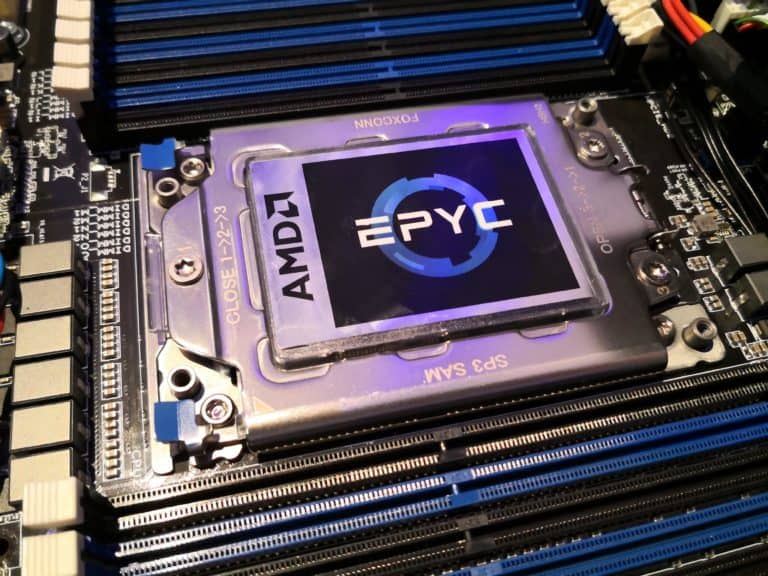AMD’s new Zen 2-cpus, baked at 7 nm, will first enter the server market. The chips are launched in Q3.
AMD is preparing for the launch of the first Zen 2 architecture chips. This successor to the first Zen chips is baked at TSMC, mainly at 7 nm. We’ve known for some time that the launch was planned for this year. AMD now announces that it aspires to availability of the chips in Q3.
Epyc first
Then Zen will launch two under the Epyc flag. Whereas AMD launched Zen with Ryzen at the time and aimed at enthusiasts in the consumer market, the chip designer is now fully committed to the server market. The chips, codenamed Rome, will benefit from the smaller production method and also have some architectural improvements on board.
Since Zen, AMD has opted for a modular design, in which chips are built from multiple cpus, connected to Infinity Fabric. This approach will remain, but will be further specialised. The computer cores will offer a higher clock speed at a lower power consumption thanks to 7 nm, but the I/O hatch will not be able to make such gains. Clock frequency is part of standards such as USB and SATA. For the I/O chiplet, AMD therefore still chooses 14 nm, which has the biggest advantage of lower production costs.
AVX2
Rome is made up of up to 8 chiplets, which should account for 64 cores with 128 threads for the most high-end piece of hardware. Moreover, the new Epyc-cpus retains support for two sockets, for those who would like to put even more computing power into their server.
AMD also improves AVX2 support. The first generation of Zen chips had 128 floating point units to handle AVX2, which meant that every 256 bit instruction was split in two. Zen 2 gets full 256-bit support.
Navi
AMD also unravels some details about Navi. This architecture serves as a foundation for the manufacturer’s new graphics cards, and is also baked at 7 nm. AMD doesn’t want to say much about Navi yet, although we now know that the launch is also planned for Q3, and that AMD wants to focus primarily on midrange maps for the consumer market.
Related: AMD challenges Intel with 7nm Epyc demonstration
This news article was automatically translated from Dutch to give Techzine.eu a head start. All news articles after September 1, 2019 are written in native English and NOT translated. All our background stories are written in native English as well. For more information read our launch article.